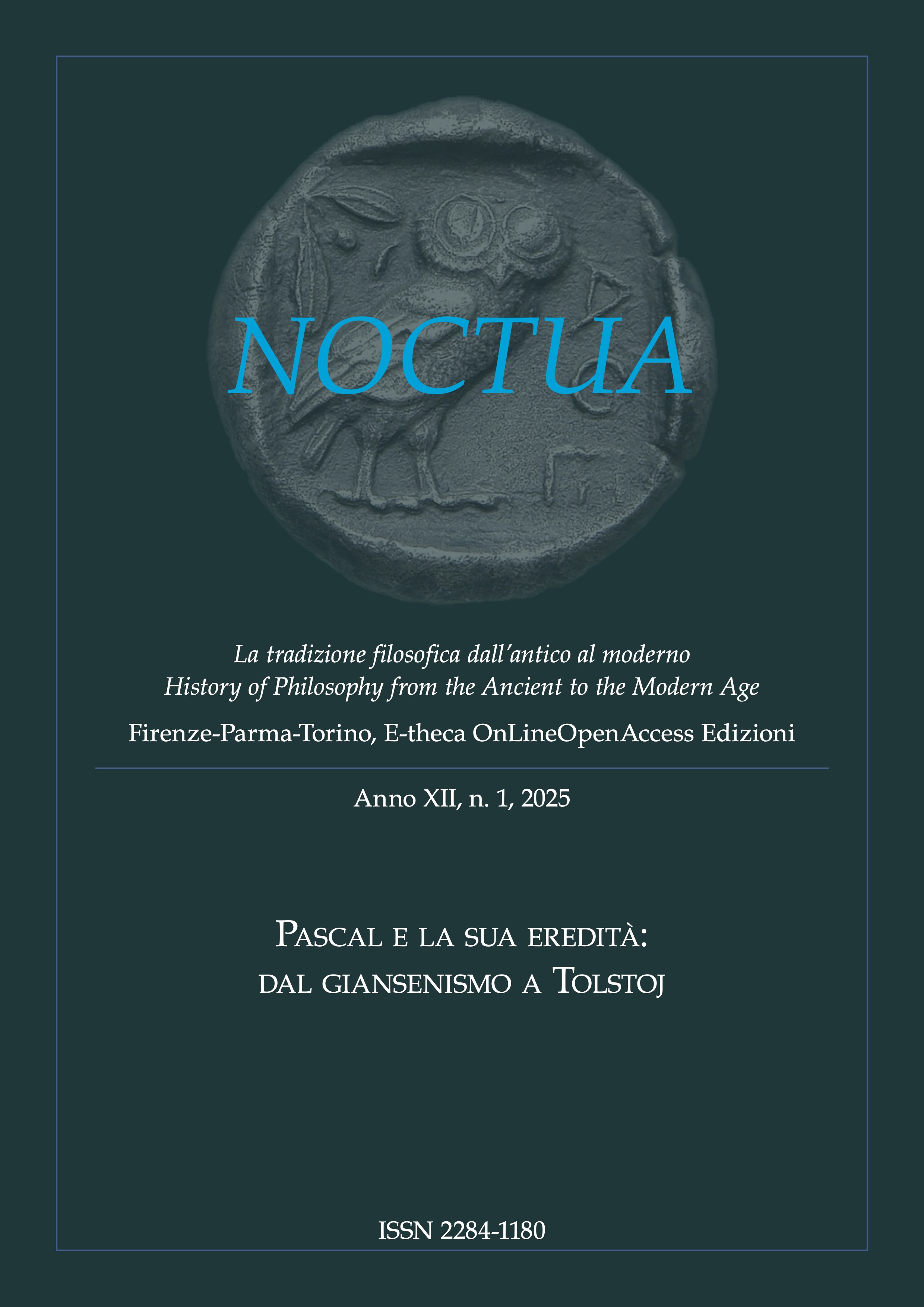Kierkegaard, Pascal, e il modello socratico
DOI:
https://doi.org/10.14640/NoctuaXII5Parole chiave:
knowledge, certainty, probability, habit, choiceAbstract
Socrates was a constant point of reference for Kierkegaard, but over time Kierkegaard modified and refined his understanding of the Athenian. In The Concept of Irony, Socrates begins and ends with ‘the knowledge of not knowing’, in the Concluding Unscientific Postscript and in the subsequent Notebooks he bets everything on the existence of God and on his own immortality. Finally, in the latest issue of The Instant, Socrates is indicated as the man who had in his own world a function similar to the one Kierkegaard recognized for himself in relation to Christianity. Pascal is mentioned for the first time in the Stages on Life’s Way and subsequently, with a certain frequency starting from the last months of 1850, in the Journals and Notebooks, where one appreciates, among other things, the underlining of the probabilistic nature of many presumed certainties. It is possible that reading Pascal, a man of faith who insists both on the impossibility of not choosing and on the use of reason that can prepare and guide choices, and finally on the formation of a habit that must favor choices prompted by the human need for meaning, has helped to confirm Kierkegaard in his understanding of the figure of Socrates.
##submission.downloads##
Pubblicato
Fascicolo
Sezione
Licenza
Copyright (c) 2025 Alberto Siclari

TQuesto lavoro è fornito con la licenza Creative Commons Attribuzione 4.0 Internazionale.
Noctua pubblica contributi Diamond Open Access secondo i termini della licenza CC BY / Noctua publishes Diamond Open Access contributions under the terms of the CC BY license.






